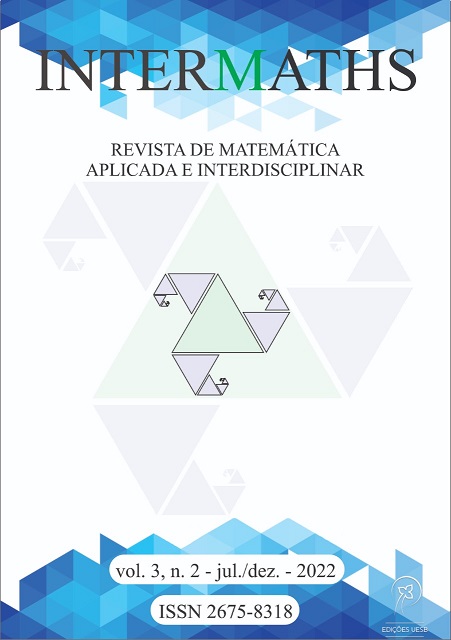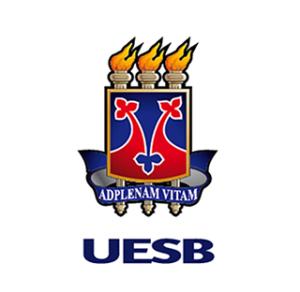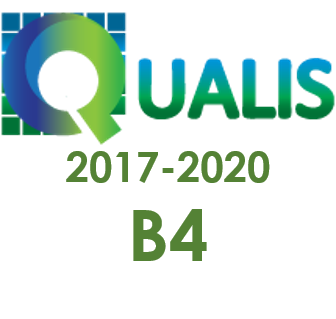Pedagogical potencials of a digital game for the theaching linear regression
DOI:
https://doi.org/10.22481/intermaths.v3i2.11415Keywords:
Digital games, Mathematics teaching, Linear regressionAbstract
The present work deals with digital games in mathematics teaching and aims to investigate the pedagogical potentialities of a digital game for the teaching of linear regression. This study is justified by the cultural issues of digital games being part of the students’ daily lives, whether basic or higher education, in addition to the indications and notes by the guiding documents of education onthe use of these tools in mathematics classes. The methodology follows a qualitative approach and the Softmat tool was used to evaluate the pedagogical potentialities of a digital game for the teaching of linear regression. The results obtained from the evaluation show that the digital game evaluated in this study is adequate for use in the classroom, because it obtained 79% adequacy to the items evaluated in the Softmat methodology.
Downloads
Metrics
References
L. H. Magnani, “Por dentro do jogo: videogames e formação de sujeitos críticos", Trabalhos em linguística aplicada. vol. 46, no. 1, 2007.
Brasil, Secretaria do Ensino Fundamental, Parâmetros Curriculares Nacionais, Matemática – 5ª a 8ª séries, Brasília: MEC/SEF, 1998.
Brasil, Secretaria de Educação Básica, Orientações Curriculares para o Ensino Médio, Ciências da natureza, matemática e suas tecnologias – 1ª a 3ª séries, vol.2, Brasília: MEC/SEB, 2006.
Brasil, Secretaria de Educação Básica, Base Nacional Comum Curricular, Brasília: MEC/SEB, 2018.
J. P Gee, Bons Videojogos + Boa Aprendizagem: Colectânea de Ensaios sobre os Videojogos, a Aprendizagem e a Literacia. Trad. Maria de Lemos Teixeira, Portugal: Edições Pedago, 2010.
L. Alves, L. Fuentes and M. Juliano,“Avaliação Heurística como método potencial para avaliar a eficiência de um jogo educativo", in: Games e suas interfaces, L. Alves (Org.), Santo Tirso: Whitebooks, 2015, pp. 31-52.
C. D. Poeta, M. Geller, “Jogos digitais educacionais: concepções metodológicas na prática pedagógica de matemática no ensino fundamental", EDUCAÇÃO MATEMÁTICA EM REVISTA–RS, [S.l], vol. 1, no. 15, 2014.
J. L Pinheiro, R. L Carvalho and D. L. Maia, “Recursos didáticos digitais e o Ensino da Matemática", in: Matemática, Aprendizagem e Ensino, M. C. Barreto, et al. (Org.), Fortaleza: Eduece, 2013, pp. 151-166.
R. C. Bassanezi, Ensino-aprendizagem com Modelagem Matemática. 3ed, São Paulo: Contexto, 2002.
S. J. Leon, Álgebra Linear com aplicação. Trad. e Rev. Sergio Roberto Taboada, 8.ed., Rio de Janeiro: LTC, 2011.
R. Bogdan; S. K. Biklen, Investigação qualitativa em educação: uma introdução à teoria e aos métodos. Porto, Portugal: Porto, 1994.
L. E. S. Góes, “A integração do jogo digital Saga Linear na situação-problema envolvendo regressão linear sob a ótica da Modelagem Matemática", Dissertação (Mestrado em Educação Matemática), Universidade Estadual de Santa Cruz, UESC, Ilhéus – BA, Brasil, 2018.
S. C. F. Batista, “Um repositório de softwares para matemática do ensino médio – um instrumento em prol de posturas mais conscientes na seleção de softwares educacionais", Dissertação (Mestrado), Ciências de Engenharia, Universidade Estadual do Norte Fluminense, Campos dos Goytacazes, RJ, Brasil, 2004.
J. Huizinga, Homo ludens: O jogo como elemento da cultura. Trad. João Paulo Monteiro, 8.ed., São Paulo: Perspectiva, 2014.
Downloads
Published
How to Cite
Issue
Section
License
Copyright (c) 2022 INTERMATHS

This work is licensed under a Creative Commons Attribution 4.0 International License.
- Responsibility: The scientific content and the opinions expressed in the manuscript are the sole responsibility of the author(s).
- Copyrights: INTERMATHS.
- All content of Revista INTERMATHS/INTERMATHS journal is licensed under a Creative Commons - Atribuição 4.0 Internacional







